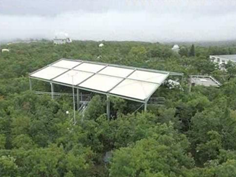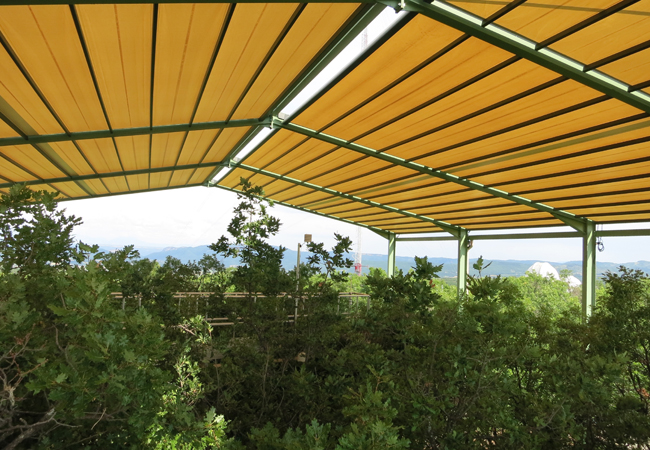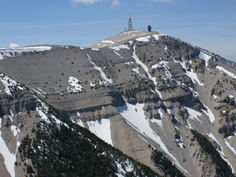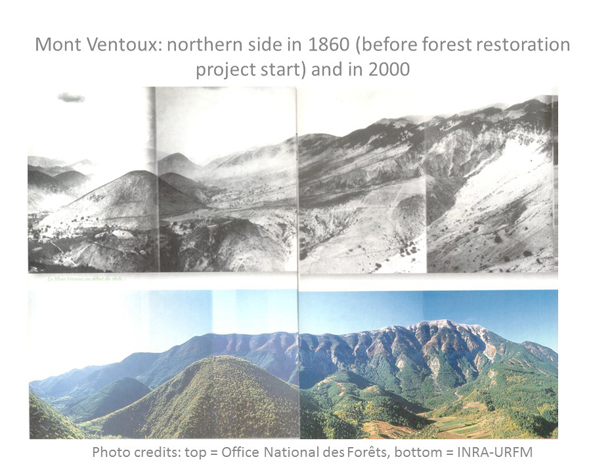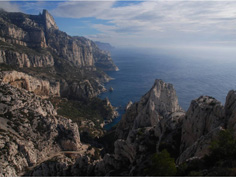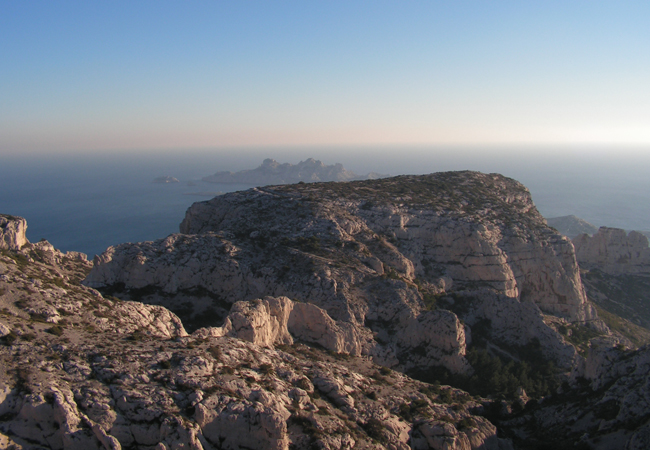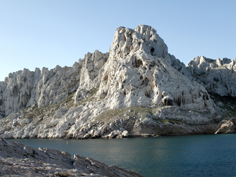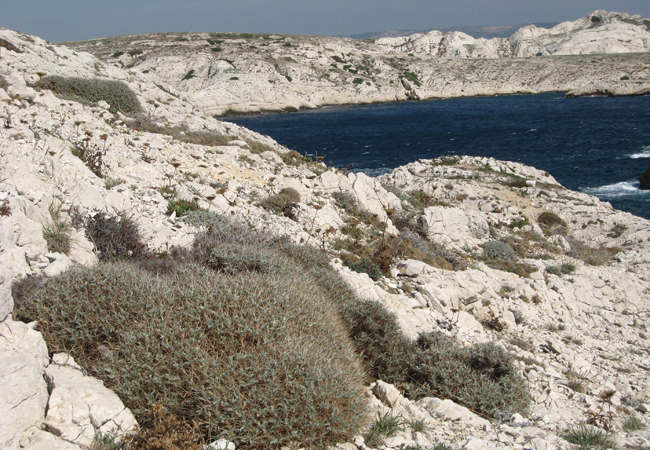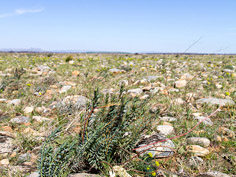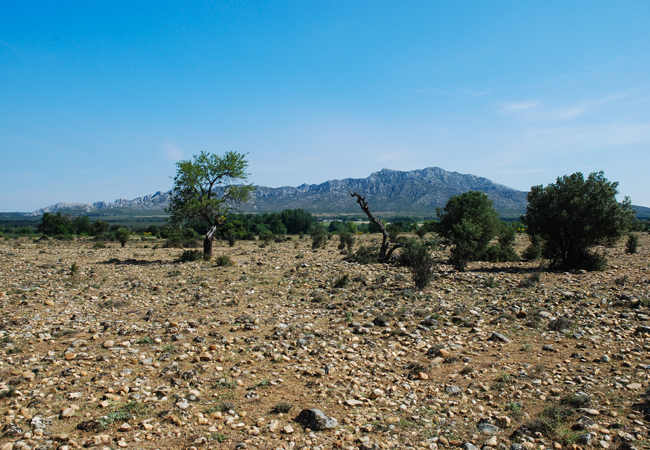
Program > Field tripsField TripsThe Sfecology field trips are scheduled for Friday, October 28th, 2016. Except for the “Iles de Marseille”, all field trips will start at 08h30 in the centre of Marseille and arrival time back in Marseille will be at about 18h00. MEETING POINT at 8h15 at in front of the St Charles railway station (South-Eastern side of the station), Square Narvik close to the IBIS hotel (buses won't wait). Due to the proximity the Frioul Islands trip starts at 09h30 and last until 17h00. Meeting point of this field trip is the landing stage of the old harbor (“Vieux Port”). A lunch package will be delivered at the beginning of the trip. Please check weather conditions before and adapt your clothing. For most field trips hiking boots are highly recommended, for the Calanques trip they are indispensable! These field trips may be subject to changes (hours, organization, contents …). Registered participants will be informed. In the case of cancelation due to insufficient participation another field trip will be suggested, or participants will be reimbursed. WARNING: Please note that do not take care of luggages during the field trips. You need to get an arrangement with your hotel or take the luggage with you all day long. Note in particular that for the 'iles de marseille' - le Frioul trip, the transportation will be by boat and you ar not allowed to let anything in the boat.
Field trip O3HP

Sfecology 2016 - Field Trips
O3HP & The Organic Biodiversity House of Lubéron National Regional Parc(Thierry Gauquelin)Two visits are planned during this day: the visit of the Oak Observatory at the 'Observatoire de Haute Provence' (O3HP) and the visit of the Organic Biodiversity House of the Luberon Natural Regional Park in Manosque.
The O3HP has high scientific potential, commonly used in a pluridisciplinary way by several local laboratories, and is open for new scientific collaborations. Atmospheric physicians are associated with astrophysicians, ecophysiologists and ecologists, with strong interactions between the OHP and the laboratories engaged in ecological or environmental sciences such as the IMBE, CEREGE, CEA Cadarache.
Field trip Mont Ventoux

Sfecology 2016 - Field Trips
Mountain forests and open habitats of the "Mont Ventoux"(Brigitte Talon, Bruno Fady)Mount Ventoux, as well as large areas of the French Southern Alps, were the scene of large scale reforestation at the end of the 19th century and during the first half of the 20th century: soil erosion was successfully controlled and forests devastated by overexploitation and overgrazing were successfully restored. This restoration is moving into a second, dynamic phase as, for several decades now, Beech (Fagus silvatica) and Silver fir (Abies alba), which had remained within residual stands, are recolonizing the planted pine (Pinus nigra, P. sylvestris, P. uncinata) stands. The new, mostly heterogeneous and mixed stands which result from this “maturation process” form a complex landscape mosaic that opens interesting prospects for the sustainability of forest trees and their associated biodiversity. However, climate change constitutes a new, very real threat, of wich consequences are already obvious on Mount Ventoux. The challenge for foresters is to anticipate as much as possible these changes and to adjust forest management to this evolution. Mount Ventoux is not only a MAB reserve and a Natura 2000 site, it is also a unique and original natural scientific laboratory. The current – and a the short term inavoidable – forest decline in some areas requires a new approach to ecological restoration which will benefit from current research at INRA Avignon within the framework of international networks. During this full day excursion, you will discover the various landscapes and vegetation types of the "Giant of Provence", from its diverse forests at mid-elevation to its exceptional, endemic-rich, Alpine flora under its summit, 1,910 m above sea-level. Hiking shoes recommended.
Field trip Calanques of Marseille

Sfecology 2016 - Field Trips
The Calanques National Park: Nature conservation and plant ecology(Arne Saatkamp, Daniel Pavon, Gabriel Nève)This field trip will take you into the Calanques National Park, where we will hike from the coast to the peaks of the Massif de Marseilleveyre for discovering its terrestrial flora and fauna. The Calanques NP is an important field site for several research projects conducted by the IMBE on nature conservation, population dynamics, ecology and evolution of rare plants, the effect of pollution and community assemblies.. Hiking boots required.
Field trip Frioul Islands

Sfecology 2016 - Field Trips
Islands of Marseille, field trip at "Le Frioul"(Frédéric Médail and Philippe Ponel)This field trip will be devoted to the discovery of a small Mediterranean archipelago close to Marseilles, the Frioul Islands that includes two main islands, Ratonneau (95 ha) and Pomègues (89 ha). These rocky limestone islands are interesting from an ecological and conservation point of view, since they have undergone severe environmental changes explained by the disturbance induced by seabird (yellow-legged gull) activities. We will discuss about the specific ecological patterns and process characterizing these small islands, and more generally those of the Mediterranean islands. Hiking boots required.
Field trip La Crau

Sfecology 2016 - Field Trips
Ecology and restoration of a Mediterranean steppe vegetation (La Crau)(Thierry Dutoit)The Nature Reserve of “Coussouls de Crau” (7400 ha) is one of the last xeric steppes of Europe. This species rich vegetation hosts many steppic birds and some endemic arthropods. Almost 80% of the original area disappeared due to human activities (dump, military airport, cropping…). For fifteen years, experiments have been conducted by the Mediterranean Institute of Biodiversity and Ecology to assess restoration techniques. For example, turf containing the living dominant perennial species (Brachypodium retusum) was transferred on a filled quarry to assess its effect on plant community assembly. To mitigate future damages, an experiment was also carried out on an underground pipeline where soil was transferred to accelerate the establishment of steppe vegetation. An abandoned 350 ha orchard was rehabilitated in a steppic like habitat: nurse species seeding, topsoil removal and translocation and hay transfer were assessed with the long term objective to restore the steppe vegetation in term of species richness, structure and composition. The field trip will firstly focus on the original steppe ecosystem and on the experimental plots. Hiking boots recommended. Watch field trips videos |
| Online user: 2 | RSS Feed |

|

